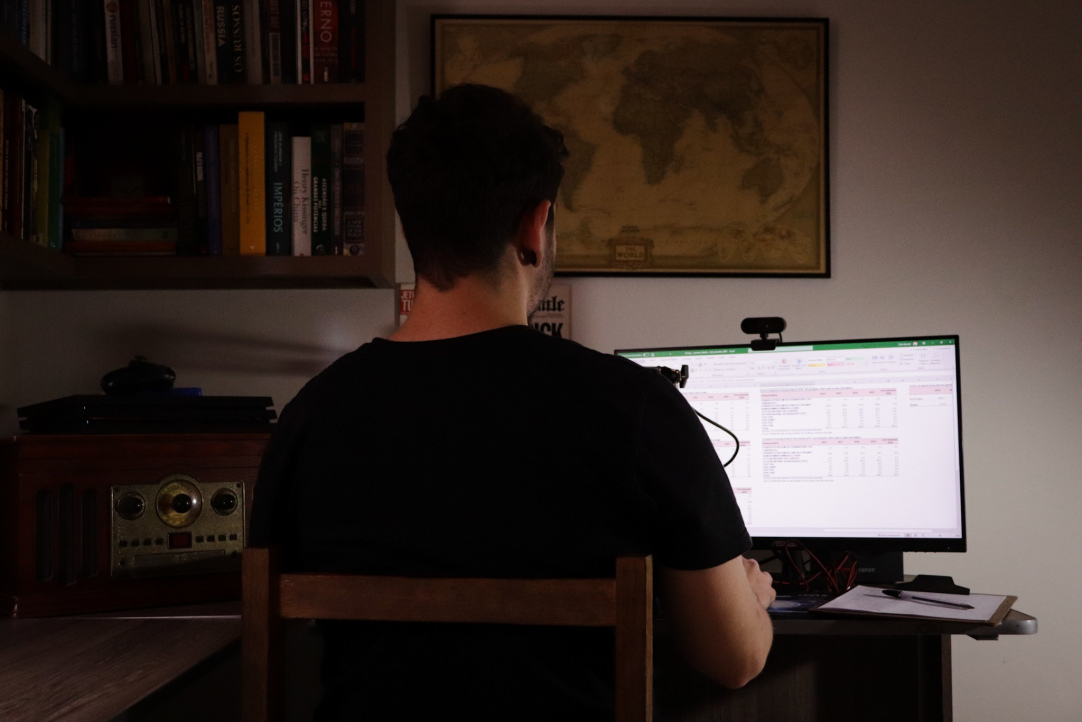International Relations, Energy, and a Long-Distance Relationship with Russia: A Brazilian Student's Story
Having earned degrees in International Relations and Energy, Tulio Bunder from Brazil wanted to pursue his research in Eurasian Energy Geopolitics, which led him to the Master's programme in Comparative Politics of Eurasia. Though based in another BRICS country, he decided to study in Russia—and despite the challenges posed by the pandemic and his long-distance relationship with Saint Petersburg and HSE University, he seems happy with his choice.

— Tulio, why have you decided to study in Russia?
— There are several reasons, but I believe the most important is my long-time dream of visiting the country (linked to the history of Imperial Russia and the Soviet Union). A secondary reason, even more essential professionally, is studying in a significant country for my research based on the geopolitics of gas pipelines in Eurasia. Furthermore, Russia (inevitably) plays a central role in connective projects on the Eurasian continent that tends to profoundly shape the international political economy in the coming decades.
— What is your educational background? Why have you chosen HSE — St. Petersburg and the MA programme 'Comparative Politics of Eurasia'? What are your expectations from the programme?
— I graduated in International Relations from the Federal University of Pampa (Brazil). I believe it is important to mention that International Relations in Brazil have a distinct character from IR in the Northern Hemisphere, especially in the US. Brazilian IR approaches have a greater focus on Diplomatic History, Foreign Policy Analysis, and Economic History (thus Development) without much attention to the field's theoretical paradigms and (excessive) positivist notions.
I also have a Master's in Energy (interdisciplinary) from the Federal University of ABC (Brazil) – dissertation on Petroleum Geopolitics in the Caspian Basin. The decision to do another master's degree was not an easy one, a risk that I still do not know the consequences of. However, I believe it is paying off for my academic future – the technical focus left several gaps in the theoretical and methodological field.
Concerning my choice to study at HSE University — Saint Petersburg, it was linked to its reputation in education and research. Regarding the course 'Comparative Politics of Eurasia', the choice was carefully thought out and studied. Furthermore, I analyzed the curricula of other programmes, considering the pros and cons and concluding that this was the best program to advance my research, also because of the vast possibility of improving my research methods, Area Studies, and Russian Politics (domestic and international).
Regarding the expectations for the programme, I do not particularly have any – after all, they have already been consummated. But, first, the programme has various courses covering major topics about Eurasia, taught by good teachers. Second, the programme is serious and demanding. Third, it presents specific and common problems like any university around the world.
Anyway, talking about expectations... I intend to be able to finish my master's degree on Russian soil with in-person classes.
— How would you describe your experience in the programme? Have you managed to adapt to online learning? What else has been challenging for you during your first academic year at HSE?
— Overall, fine. Even facing the remote study scenario and its difficulties, the programme proved to be prepared for the current challenges; typical problems occurred, but nothing unusual. Obviously, the absence of in-person classes significantly interferes with the learning process in different areas. However, if properly performed, I believe that readings and tasks make up (in part) of the losses of a conventional teaching process (interactive, social, and broader).
In terms of challenges in the first year... Well, the HSE’s calendar in the 3rd and 4th modules slightly compromises the routine. I believe it is more a problem for me, but this break in the flow of studies generates an anticlimax.
— What are your research interests? What is the topic of your MA thesis and why?
— As I mentioned, my research interests are mainly based on Geopolitics Energy. However, as a 'hobby' (or even an escape from ultra-specialization), I try to read about the History of Wars and Development theories.
My current research topic is on Russian and US Energy Strategies in Eastern Europe – in the context of structural changes in the international system. This theme is a direct and indirect consequence of my past research on US activities in the Caspian Sea Region, where several questions and gaps emerged throughout this process. Above all, in the absence of literature focused on the geopolitics of energy in Eastern Europe (from the 2010s to the present time) in the context of geopolitical rivalry between the US and Russia. Abandonment, if I can consider it an abandonment, to the Caspian basin region is related to the theme being highly saturated and academically advanced.
— What are your career plans?
— I intend to pursue an academic career and teach in Brazil. But life is too uncertain for us to determine what will happen, and nothing is out of the question for the moment. Moreover, the world economic situation, especially in Brazil is not encouraging. As such, I cannot afford to throw out other possibilities that might arise.
Master's programme 'Comparative Politics of Eurasia' brings together conceptual training in comparative political science and comprehensive empirical training in contemporary methods of social science research. Visit the programme's page to learn more about the programme, its structure, and the opportunities it gives.
To learn more about international admissions, visit the International Office's page.

